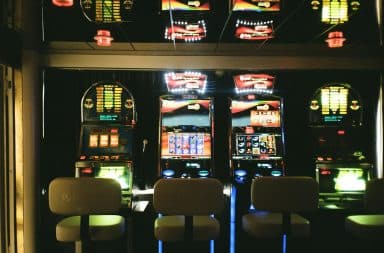Gambling has long been a popular pastime, with casinos offering a unique blend of entertainment, socializing and the thrill of potential rewards. In recent years, the rise of live casinos, like the top PA live dealer casinos that are available online, has added a new dimension to the gambling experience, allowing players to interact with real dealers and other players in real-time. But what drives people to gamble in casinos, and what social and psychological factors influence their behavior? In this article, we'll explore the social science behind gambling in casinos and examine the complex interplay of individual, social, and economic factors that shape this fascinating aspect of human behavior.
The Psychology of Casino Gambling
At the heart of casino gambling lies the allure of risk-taking and the potential for rewards. The excitement of placing a bet at the top PA live dealer casinos and the anticipation of a possible win can trigger the release of dopamine, a neurotransmitter associated with pleasure and reward. This neurochemical response can reinforce gambling behavior, making it more likely that individuals will continue to gamble in the future. However, cognitive biases can also influence gambling decisions, such as the gambler's fallacy (the belief that a losing streak is due to end) or the illusion of control (the belief that one can influence the outcome of a game). The casino atmosphere, with its flashing lights, sounds and social buzz, can further enhance the gambling experience and contribute to the psychological appeal of gambling.
Social Influences on Gambling Behavior
Gambling behavior is not solely determined by individual psychology; social factors also play a significant role. Peer pressure and the desire to fit in can influence people's decision to gamble, particularly in social settings like casinos and on forums where they talk about the top PA live dealer casinos. Social norms and attitudes towards gambling can also shape behavior, with some cultures and communities being more accepting of gambling than others. The rise of social gaming in live casinos and online platforms has added a new layer to the social dynamics of gambling, allowing players to interact and compete with each other in real-time at the top PA live dealer casinos and other platforms. Additionally, advertising and marketing efforts by casinos and gambling companies can influence people's perceptions and attitudes towards gambling, potentially contributing to increased participation.
The Economics of Casino Gambling
From an economic perspective, casinos are businesses that aim to maximize profits. The house edge ensures that, over the long term, casinos will always come out ahead. However, the presence of casinos can also have broader economic impacts on local communities. Casinos can create jobs and generate tax revenue. The relationship between gambling and tourism is also significant, with many cities and regions using casinos as a draw for visitors such as when people travel from out of state in order to be able to access the top PA live dealer casinos. Understanding the economic dimensions of casino gambling is crucial for policymakers and communities seeking to balance the potential benefits and costs of this industry.
Responsible Gambling Practices
Given the potential risks associated with gambling, promoting responsible gambling practices is essential. This includes setting limits on time and money spent gambling, as well as educating players about the odds and risks involved. Many casinos and gambling platforms like most of the top PA live dealer casinos now offer tools and resources to help players stay in control, such as self-exclusion programs and links to support services. However, the effectiveness of these interventions can vary, and there is ongoing debate about the best ways to prevent and address problem gambling. Ultimately, creating a culture of responsible gambling requires a collaborative effort between individuals, the gambling industry and policymakers.
In conclusion, the social science behind gambling in casinos reveals a complex interplay of psychological, social and economic factors. From the neurochemical rush of placing a bet to the social dynamics of live dealer games, gambling behavior is shaped by a wide range of influences. By understanding these factors, we can develop a more nuanced understanding of why people gamble and how to promote responsible gambling practices. Whether you're a seasoned player or simply curious about the world of casino gambling, taking a closer look at the social science behind this popular pastime can provide valuable insights into the human experience.


